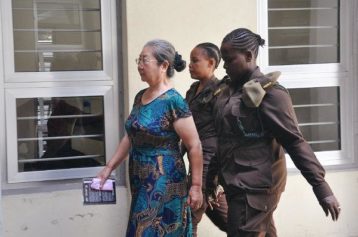Tanzania is a country with a much higher percentage of albinos than the rest of the world, and it’s also a place where albinos face serious danger because of widespread beliefs that the flesh and body parts of albinos hold some type of magic.
According to a recent report that aired on NPR, albino killings have been reported in at least a dozen countries on the African continent, but nowhere is worse than Tanzania—where 100 albinos have been violently attacked over the last six years, with 71 being killed and many of the remaining being maimed.
The government has resorted to opening special boarding schools for albino children to protect them from the rest of the population.
“In society, there are people such as witch doctors who look for body parts; people will kill albinos to make magic,” said Isaac Timothy, an albino activist in the gold-mining town of Geita, where belief in witchcraft is widespread.
“When you bring [a witch doctor] a body part, such as an arm, a leg or a finger, the witch doctor will make a potion with it,” Timothy says. “A miner will pour it in the ground where he wants to find minerals or a fisherman will pour it in his canoe.”
Across the globe, the rate of albinism is about 1 in 20,000 but in Tanzania it’s 1 in every 1,400 people, a startlingly high rate. Scientists believe that is because the genetic mutation that creates albinism started in Tanzania and East Africa. They call it the “founders effect.” Then the albinism numbers in Tanzania get even more exacerbated because albinos there tend to marry each other because of the discrimination and social exclusion, which greatly increases the likelihood that they will have albino children.
Through public education and government warnings, the numbers of albino murders in Tanzania has been decreasing. But the prejudice and misunderstanding they face still can be severe.
Grace Wabanhu, a 26-year-old albino from northern Tanzania who works for Under the Same Sun, an advocacy group in Dar es Salaam, says a common belief is that albinos don’t die, they vanish like ghosts.
She’s also been asked, Is it true that if I have a disease and I have sex with an albino my illness will be cured? If I touch you, is albinism contagious? Do you feel pain?
“People didn’t know what is albinism. But after explaining to them they came to think, ‘Hah, this is normal person like others,’ ” Wabanhu says. “So it’s because of ignorance. People don’t know.”
Albinos must protect their pale skin with long sleeves, hats and sunscreen to avoid skin cancer, which kills 98 percent of Tanzanian albinos before they reach their 40th birthday, according to Under the Same Sun.
In school, teachers are often unaware that albinos have impaired vision that prevents them from reading a blackboard like other children, so albino students often fall behind.
“It’s going to be very, very difficult for every Tanzanian all of a sudden to forget about the myths and then believe that persons with albinism are human beings,” says Vicky Ntetema, Tanzania executive director of Under the Same Sun, which is based in Vancouver, Canada.


